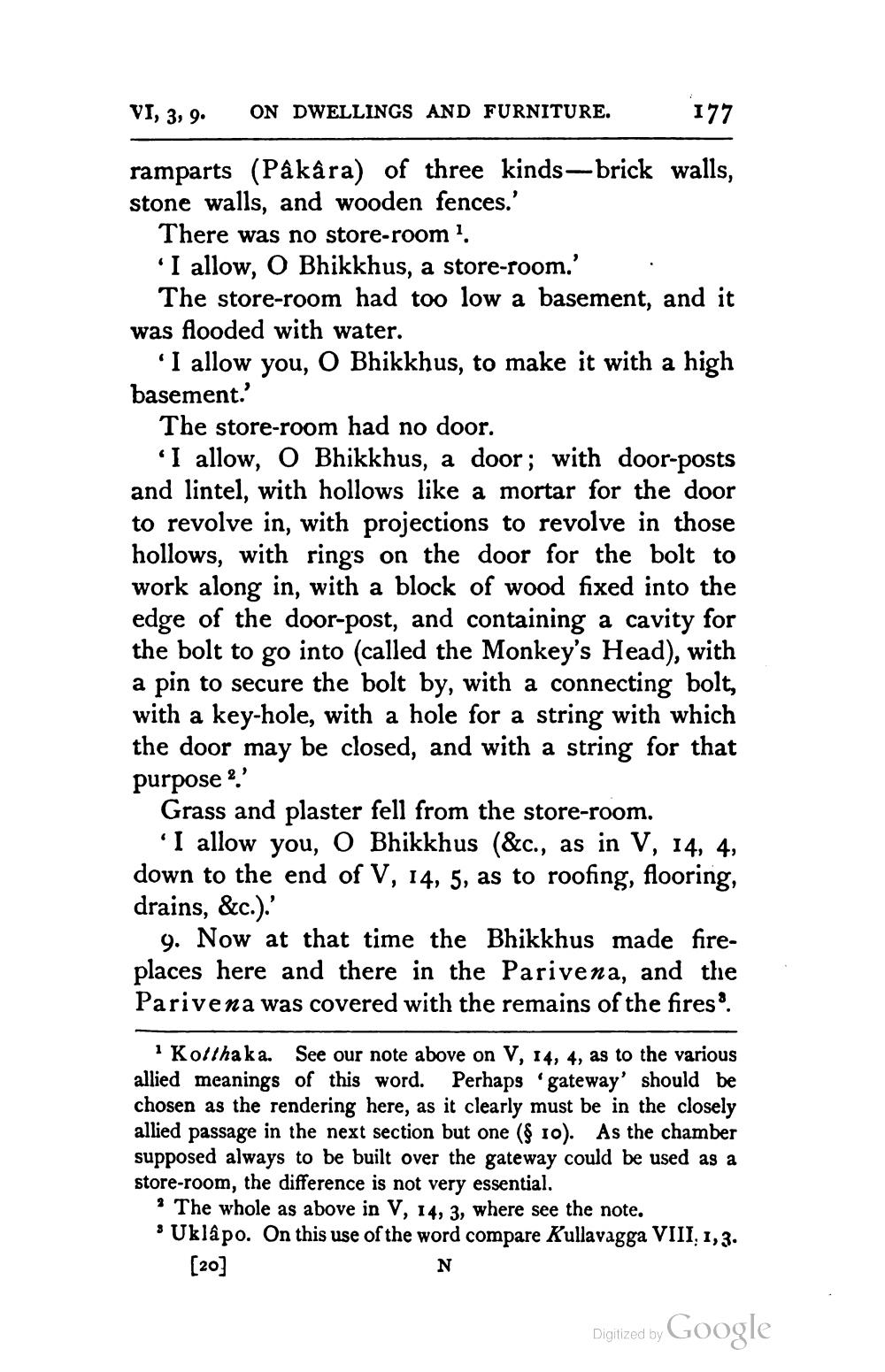________________
177
VI, 3, 9.
ramparts (Pâkâra) of three kinds-brick walls, stone walls, and wooden fences.'
There was no store-room 1.
ON DWELLINGS AND FURNITURE.
'I allow, O Bhikkhus, a store-room.'
The store-room had too low a basement, and it was flooded with water.
'I allow you, O Bhikkhus, to make it with a high basement.'
The store-room had no door.
'I allow, O Bhikkhus, a door; with door-posts and lintel, with hollows like a mortar for the door to revolve in, with projections to revolve in those hollows, with rings on the door for the bolt to work along in, with a block of wood fixed into the edge of the door-post, and containing a cavity for the bolt to go into (called the Monkey's Head), with a pin to secure the bolt by, with a connecting bolt, with a key-hole, with a hole for a string with which the door may be closed, and with a string for that purpose 2.'
Grass and plaster fell from the store-room.
'I allow you, O Bhikkhus (&c., as in V, 14, 4, down to the end of V, 14, 5, as to roofing, flooring, drains, &c.).'
9. Now at that time the Bhikkhus made fireplaces here and there in the Parivena, and the Parivena was covered with the remains of the fires".
1 Kotthaka. See our note above on V, 14, 4, as to the various allied meanings of this word. Perhaps 'gateway' should be chosen as the rendering here, as it clearly must be in the closely allied passage in the next section but one (§ 10). As the chamber supposed always to be built over the gateway could be used as a store-room, the difference is not very essential.
The whole as above in V, 14, 3, where see the note.
Uklâpo. On this use of the word compare Kullavagga VIII, 1,3.
[20]
N
8
Digitized by Google




